close 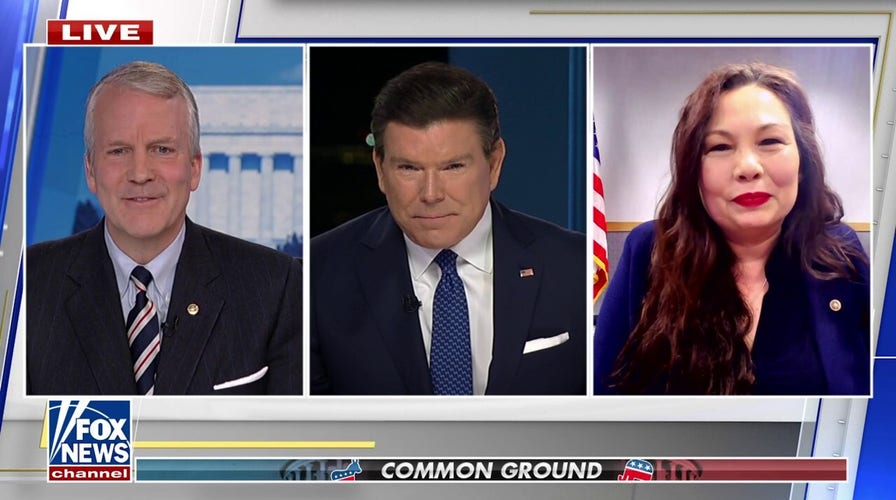
A Republican and a Democratic senator find common ground on Taiwan policy
Sen. Dan Sullivan, R-Alaska, and Sen. Tammy Duckworth, D-Ill., join ‘Special Report’ with shared focus on Taiwanese democracy.
Join Fox News for access to this content Plus special access to select articles and other premium content with your account – free of charge. Please enter a valid email address. By entering your email and pushing continue, you are agreeing to Fox News’ Terms of Use and Privacy Policy, which includes our Notice of Financial Incentive. To access the content, check your email and follow the instructions provided. Having trouble? Click here.
EXCLUSIVE – Taiwan, an island slightly bigger than the state of Maryland, carries enormous strategic importance for not only U.S. security and prosperity, but also in preventing a global war, a special report by the Heritage Foundation warned Wednesday.
Tensions between the U.S. and China over Taiwan have been on the rise over the last decade, and many have questioned why the U.S. would risk a potential war with its chief rival over a relatively small island.
“The security and prosperity of the United States depend to a shocking extent on a secure Taiwan that functions independently of the [People’s Republic of China] PRC,” research fellow and China expert for the Heritage Foundation Michael Cunningham wrote in a report titled “The American case for Taiwan.”
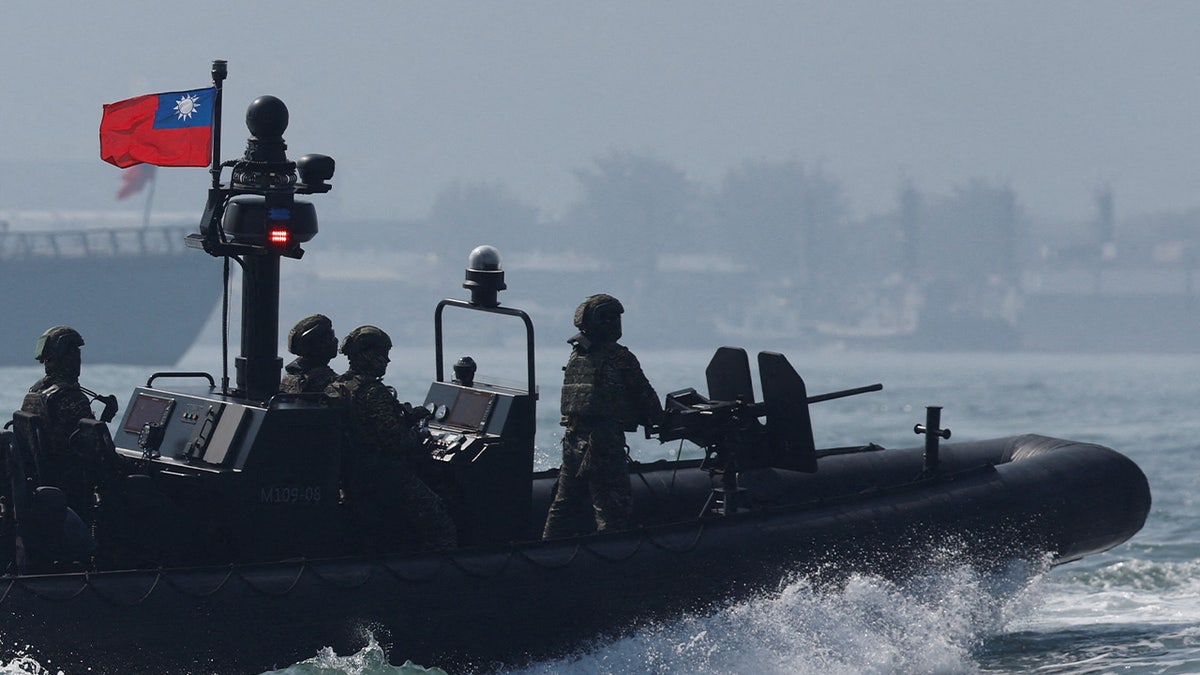
Members of Taiwan’s Navy navigate onboard a special operation boat during a drill as part of a demonstration for the media, to show combat readiness ahead of the Lunar New Year holidays, on the waters near a military base in Kaohsiung, Taiwan, on Jan. 31, 2024. (REUTERS/Carlos Garcia Rawlins)
TAIWAN CONDUCTS DEFENSIVE MILITARY DRILLS AS CHINESE WARSHIPS, PLANES LOOM
“A change in Taiwan’s status might not directly threaten the U.S. homeland in the immediate term, but it would irreversibly alter regional dynamics in ways that would benefit America’s chief geopolitical adversary and make every American less safe,” he said in the report first viewed by Fox News Digital.
A secure Taiwan became a top issue following the end of World War II, when the U.S. entered the Cold War with the Soviet Union and its fight against communism kicked off.
Cunningham pointed to a previously classified memorandum prepared by General Douglas MacArthur in 1950 that said China would “increase by 100 percent” its ability to deploy air combat options and strike American bases in places like Japan and the Philippines should they control the island of Taiwan.
“Little has changed in the decades following,” he noted.
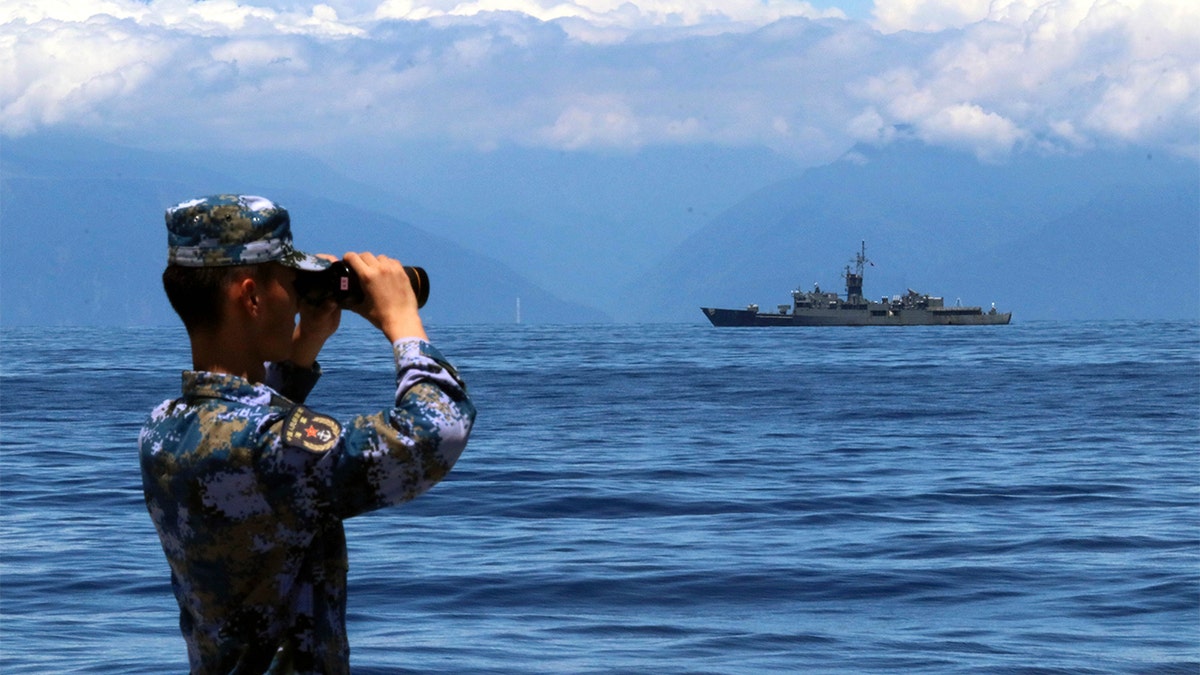
A People’s Liberation Army member looks through binoculars during military exercises as Taiwan’s frigate Lan Yang is seen at the rear, on Friday, Aug. 5, 2022. (Lin Jian/Xinhua via AP)
Some 80,000 U.S. troops are stationed in Japan and South Korea, but a Chinese-controlled Taiwan would not only serve as a better launch point for air and missile operations, it would enable Beijing to exert greater control over international waters that serve as major trade and security transportation routes, seriously threatening top U.S. allies.
“The [People’s Liberation Army] PLA handbook outlines a post-Taiwan unification plan to use blockades to limit Japan’s imports of raw materials gradually until its ‘national economy and war-making potential will collapse entirely’ and there is ‘a famine within the Japanese islands’,” Cunningham wrote in reference to China’s military. “Were China ever to execute such a plan, Japan would be at its mercy.”
CHINA THREAT LOOMS LARGE AS TAIWAN VOTES IN PIVOTAL ELECTION: ‘CHOICE BETWEEN WAR AND PEACE’
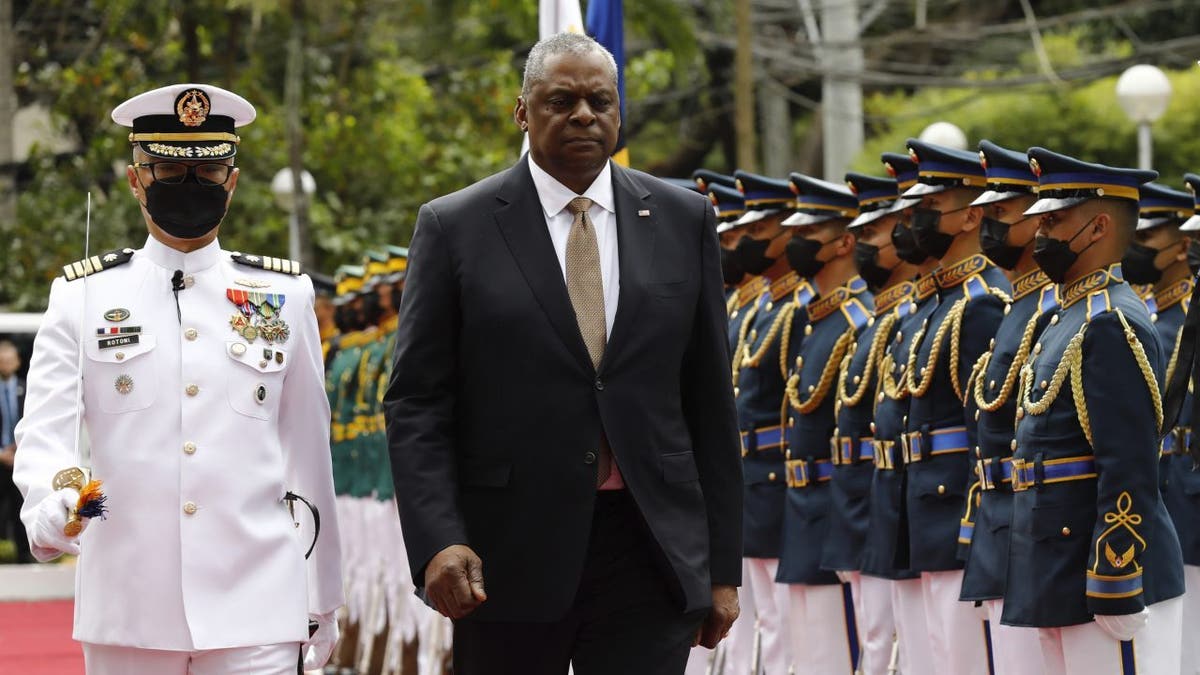
Defense Secretary Lloyd Austin, center, walks past military guards during his arrival at the Department of National Defense in Camp Aguinaldo military camp in Quezon City, Metro Manila, Philippines on Thursday, Feb. 2, 2023. (Rolex Dela Pena/Pool Photo via AP)
Cunningham also argued that even if China did not attempt to leverage its control over international waters, there would still likely be a “crisis of confidence” in either Washington’s willingness or ability to stop China from achieving regional hegemony.
This sentiment could have serious consequences when it comes to security and trade and could prompt some nations in Southeast Asia to bolster ties with Beijing, further weakening the U.S.’ influence in the region.
However, while some nations may kowtow to a stronger Beijing, many nations in the region would not, and the threat of a global war would only increase.
“China is the biggest threat to most regional actors, and it has territorial disputes with several of them,” Cunningham wrote.
The China expert pointed out that the regional disputes are “serious political issues” and therefore are more likely to have “explosive” consequences should Beijing attempt to shift the power dynamics across Asia.
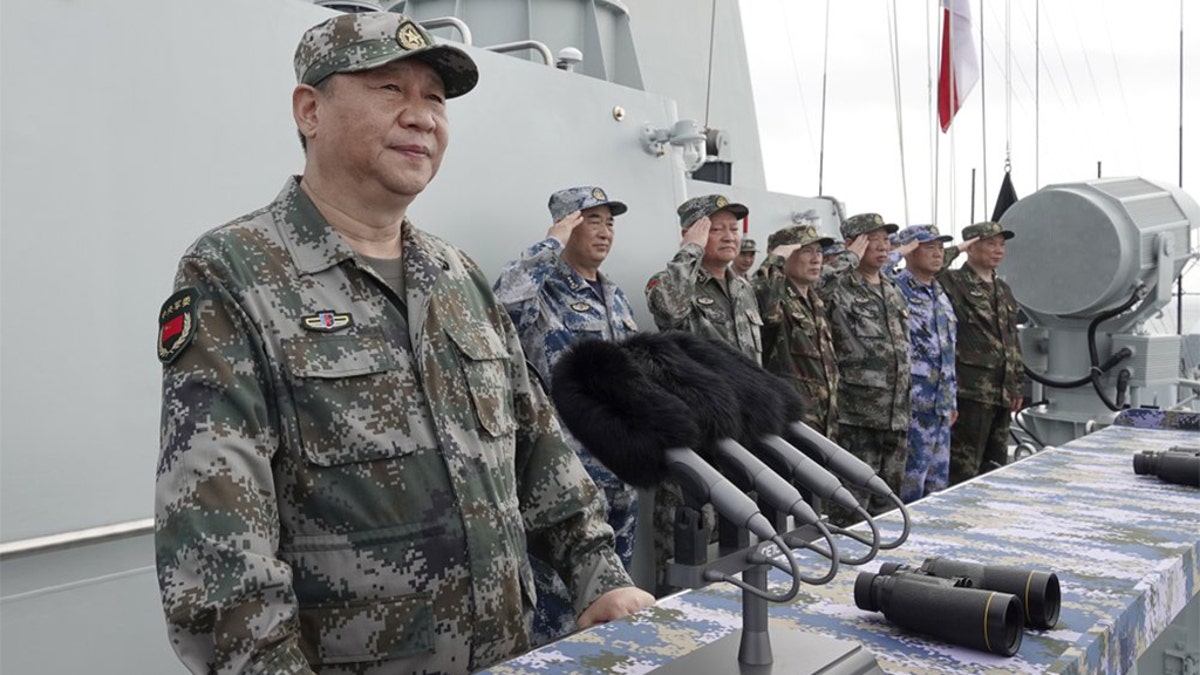
Chinese President Xi Jinping speaks after reviewing the Chinese People’s Liberation Army Navy fleet in the South China Sea on April 12, 2018. (Li Gang/Xinhua via AP, File)
CLICK HERE TO GET THE FOX NEWS APP
“The U.S. security presence is widely viewed as the main factor preventing an outbreak of great-power conflict in a region that is so critical to global economic and political affairs that such a conflict could easily spread to assume a global scale,” Cunningham warned.
“If China gained control of Taiwan, it would set in motion a series of events that could make every American less secure.”
Caitlin McFall is a Reporter at Fox News Digital covering Politics, U.S. and World news.
